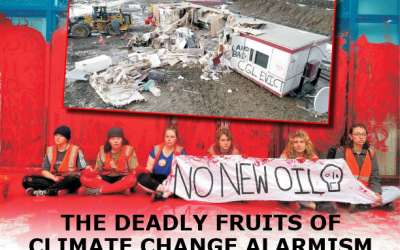In a local café, at lunch time, the faces are old and the hair grey. Many of the stores on the main street are vacant. The hairdresser just retired, closing up her shop.
"In 10, 15 years, what will it be like?" Tara de Ryk, editor of the Davidson Leader, wonders. She knows the answer. Davidson will be like it is now, only the people will be even older, and there will be fewer of them, with fewer shops to serve them. It may take a generation to finish the process, but if things go the way they're going, Davidson will die.
Craik won't.
A dusty collection of houses beside an abandoned grain elevator, Craik is a few kilometres south of Davidson, both of which are about halfway between Regina and Saskatoon. Craik is smaller than Davidson — 413 souls, compared to 1,035 in Davidson — and the houses are generally poorer and more of the streets are unpaved.
But there's a strange-looking building on the edge of town, filled with solar panels and heat sinks, with straw bales for insulation, and composting toilets.
The people of Craik raised $250,000 among themselves to help build the Eco-centre, as they call it, and now they want to build a whole eco-village around it. Recently, Hemptown Clothing announced plans for a $5-million, high-tech hemp-processing plant to be located on land near the Eco-centre.
"The town council was beyond aggressive," in wooing the project, says company president Jerry Kroll. "They are going to make that town a big deal. Why wouldn't we go there?"
Everyone knows that rural Canada is in economic and population decline. Nowhere is that decline more poignant than in Saskatchewan. It is the province with the highest percentage of workers employed in small businesses, but the number of those businesses has been steadily diminishing since the late 1980s, and the population of the province has been diminishing along with it. In the past four years alone, according to Statistics Canada, Saskatchewan's population has gone from 1,007,800 to 995,400.
The story is familiar. Farms are consolidating and mechanizing, depriving the villages that served them of a reason to exist. The same process is under way in forestry and mining. The young leave, the old wait for the end. In Saskatchewan's case, Regina and Saskatoon continue to grow, albeit slowly, while the rural population hollows out.
Except, that's not the whole story.
Individual rural communities often succumb to, or defy, their fate based on one intangible, but implacable, factor: the quality and collegiality of the local elites. If the business, professional and political classes of a small town work together, if they are prepared to take risks, and if they can convince the rest of the citizenry to take risks with them, then that community can tap into emerging technologies and alternative markets to rebrand and revitalize their town.
If they can't, or won't, the town withers.
Consider the examples of Davidson and Craik. Panther Industries, which supplies products for the oil and gas sector, has a small operation in Davidson. In the late 1980s, the company wanted to expand the plant, to process and package chlorine-based products. But some local residents objected, because chlorine is dangerous unless handled properly. They fought the proposal so vehemently that the company president decided to locate the chlorine facility elsewhere.
"It took the life out of the town," observes Jack Schneider, who manages Panther's Davidson operation. "I don't think another good thing has happened since then." Since 1988, the town's population has declined by almost 20 per cent.
Craik, on the other hand, has a long history of civic activism. Back in the 1920s, it was one of the first communities in Saskatchewan to provide municipally funded health care. When the local grain elevator closed, the town fought demolition, eventually buying the structure. Rather than waging turf battles among themselves, town and regional officials have worked together to promote the town and protect threatened services, which is why the local RCMP detachment is in Craik rather than Davidson.
"
Craik has always been an aggressive town," Shirley Eade, the town administer, proudly declares. "We just never let people forget we're here."
Building on the success of the Eco-centre, Craik has announced it will donate 10 lots to families who are willing to build energy-efficient and environmentally sustainable homes. One day, there could be a whole new Craik, a mecca for environmentally sustainable industries and for people who prefer to live with, rather than just off of, the land.
Davidson doesn't have to die. It has good schools, a modern health clinic, rail and road access, and pleasant neighbourhoods. There are small towns across Canada that are working hard to exploit local natural resources and specialized skills. The increasingly widespread availability of high-speed Internet access can serve as a tremendous economic equalizer. There are villages that host colonies of artists, or serve as conference centres, or develop tourism assets, or attract retirees fleeing urban pressures and prices.
But in a country that is already among the most urban in the world, and getting more urban with each new wave of immigrants, federal and provincial subsidies for economically unviable rural areas are bound to diminish. The cities need the money more.
The future of small-town Canada is in the hands of those who live in and shape those small towns. They can sit and watch, as the lifeblood of their community drains away, or they can fight back, invest their own money, take risks.
They can be Davidson, or they can be Craik.jibbitson@globeandmail.ca


